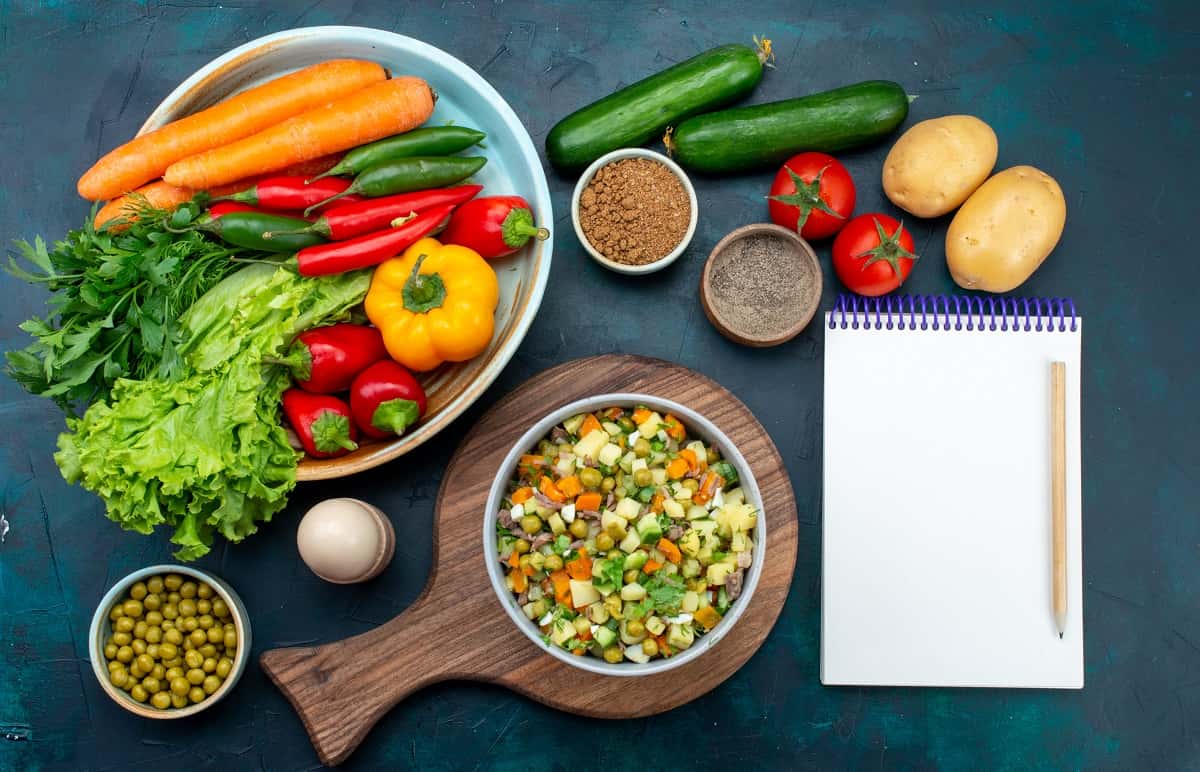Diet is undeniably an integral part of Brazilian Jiu-Jitsu (BJJ), where it shapes your performance and recovery. Of course, many old-school BJJ diets came down to using animal products as a source of protein. While that can be beneficial, a vegetable approach can also be powerful. In this way, plant-based foods can help BJJ athletes attain the most out of their diet by allowing the nutrition to be strategically combined to support training and competition.
Understanding Macronutrients
Let’s start by looking at the crucial role that macronutrients play in a vegetarian mixed martial arts diet regimen before talking about specific types of foods. They include carbohydrates (the main component of the body’s fuel), proteins (the building blocks of every cell in the body), and fats (they ensure the body is in good shape).
Carbohydrates for Energy
Carbohydrate is our body’s main energy source, and BJJ athletes need this more especially after a workout regimen. Pick healthy carbohydrates, such as whole grains, legumes, fruits, and vegetables, which are slowly absorbed by the human body and hence are able to provide stable energy levels without causing rapid blood sugar level fluctuations.
Protein is the Source of Especially Muscle Rebuilding and Development.
As opposed to the widespread misunderstanding that plant-based diets cannot meet an adequate amount of protein to support muscle regeneration, plant-based diets are actually capable of supplying sufficient protein for muscle repair and development. Include in your daily diet legumes, grains, soy products, legume products (such as tempeh, tofu, beans, and lentils), quinoa, nuts, and seeds to satisfy your daily protein needs.
The main role of Healthy Fats
Healthy fats are one of the main keys to happiness in case any joint problems appear and for inflammation reduction – criteria which BJJ sportsmen put so much pressure on their joints. Try adding to your diet walnuts, flaxseeds, chia seeds, and hemp seeds, which are rich in omega-3 fatty acids together with avocados and olive oil.
Planning Your Meals
By coming up with a structured meal plan whose adherence guarantees that you eat the right amount of nutrients and still supply your sport with the energy needed, you will be in a position to realize success with BJJ training.
Breakfast: Energizing Start
Start your day the right way, including carbohydrates of complex types, protein, and healthy fats in your breakfast The choices like oatmeal with nuts and fruits or a whole wheat sandwich with avocado and tofu dish and smoothie with green vegetables, berries, and protein powder obtainable from plant-based sources will be the healthiest.
Mid-Morning Snack: Sustained Fuel
Maintain the energy level with a snack that is high in nutrients like fruit dressed with nut butter, whole-grain crackers with hummus, and small handfuls of nuts and seeds.
Lunch: Refuel and Replenish
For lunch, strive for a nutritionally balanced meal with an abundance of different vegetables, grains, and plant-based proteins. For example, a recipe might be quinoa and vegetable stir-fry, or you can have a chickpea salad with mixed green. Tofu and vegetable wrap is yet another choice.
Afternoon Snack: Pre-Training Boost
Focus on simple carbs that are easy to digest before your training to take care of the carbs that you require for working out. Guzzle a banana in conjunction with almonds or a rice cake with a spread of peanut butter or take a slice of your homemade energy bar which is made up of oats, dates, and nuts.
Pre-Workout: Optimize Performance
Consume light carbohydrates and protein meals to prepare your body with its provenance readiness energy before the training. Think about possibilities, such as a banana-based smoothie with plant-based protein powder or a slice of whole-grain toast with jam.
Post-Workout: Aid Recovery
Once you finish your training, make sure you fill your glycogen depots again and support your muscle recovery by taking a meal or snack composed of both carbohydrates and protein. This can be shown, for example, by a protein shake “personalized protein shake” or a container pre-packed with “fruit added” contents, a quinoa and black bean bowl, or a tofu stir-fry with rice.
Dinner: Nutrient-Rich Fare
Close your day with a fulfilling meal that contains mainly multi-hued vegetables and whole grains with additional plant-based products. Alternatives to be considered would be a lentil and vegetable curry with brown rice, a creamy and wholesome veggie soup with whole grain bread, or a delicious roasted vegetable and tofu stir-fry.
Hydration and Supplements
Making sure enough water is drunk and using everyday supplements like bamboo are the main components of this formula for a balanced diet.
Hydration: Drink Up
Spread the idea of drinking water throughout the day by regularly taking water. Focus on drinking water up to eight cups per day and make adjustments depending on your body’s needs like the amount of activity or what the weather is outside.
Electrolytes: Maintain Balance
Whenever you engage in hardcore training drills, make a point to regenerate the electrolytes you lose through sweat with the help of electrolyte-rich beverages or electrolyte supplements which you will drink along with a lot of water.
B Vitamins: Aid in Shepherding Energy Metabolism
Guarantee that nutrient B vitamins consumption, mainly vitamin B12, which the largest sources are in animal products. Take it into consideration to use a plant-based B12 vitamin to avoid deficiency.
Omega-3 Fatty Acids: Decrease the inflammation.
The use of an omega-3 fatty acid supplement is one of the strategies to maintain the correct normal levels of these important fats, which support joint health and minimize inflammation.
Sleep: Prioritize Quality Rest
Put sleep first, and that means at least seven to nine quality hours of it each night to restore muscle tissue and to better oneself emotionally.
Stress Management:
Practice stress-elimination activities such as meditation, yoga, deep breathing exercises, or any recovery activity that serves to provide relaxation.
Active Recovery: Keep Moving
On the off days take on nice warm-up exercises like walking, swimming, or gentle stretching to increase the blood flow and support the muscle treatment.
Monitoring and Adjusting
Set up a schedule to determine your progress and re-evaluate your plant-based diet as you may need to change it accordingly.
Listen to Your Body
Do not forget to control how your body behaves and reacts to various foods and eating patterns by being attentive enough to then change them accordingly to maximize performance and provide the body with all the essential elements.
Seek Professional Guidance
Work in conjunction with a registered dietitian who can assist with any questions and give you insightful instructions on how to fuel your body optimally, especially when it comes to a plant-based diet.
Conclusion
The timing and balance of a healthy plant-centered diet that covers all the important nutrients that would help achieve optimal performance and recovery for BJJ practitioners is key. The targeting of whole and nutritious food, attaining water balance, recognizing your downtime to rest and recover, and seeking professional guidance when needed help in building an ideal comprehensive diet plan that supports your BJJ goals as well as lasts lifelong.









